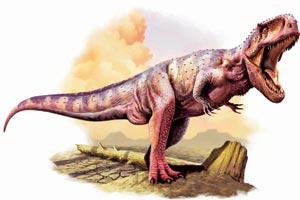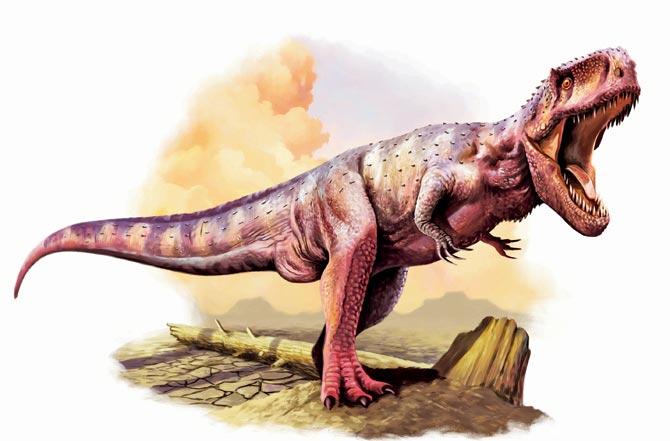A new encyclopaedia puts the spotlight on lesser-known dinosaurs that walked the Indian terrain


Illustration by Krishna Bala Shenoi
ADVERTISEMENT
It was 65 million years ago, that the last of the non-avian dinosaurs went extinct. But the fascination with the largest land animal the world has ever known continues unabated. Adding to the corpus of knowledge on the subject is a new book titled Scholastic Encyclopaedia Of Dinosaurs. Spread over 80 pages, it comprises timelines of over 33
dinosaurs, maps featuring their geographical location and captivating illustrations by animator and filmmaker Krishna Bala Shenoi.
Meet desi dinosaurs
Anukta Ghosh, editor, Scholastic India, says the idea was to provide clear, uncluttered, well-designed and easily digestible information. "Dinosaurs have captured the imagination of children and adults alike, whether it's in movies or in science fiction. While there are many books on the subject, we thought having a book that's beautifully designed and focuses on the lesser known dinosaurs would make it fun for learning and general interest," she says. That's where the idea of putting the spotlight on indigenous dinosaurs also stemmed from. "Information and discoveries about Indian dinosaurs generally doesn't get as much coverage in the Indian media as they should, compared to the dinosaurs found in America or Europe," she rues.
Take for instance, the Isisaurus that weighed 14,000 kilos and whose fossils were first discovered in 1984-86 in central India. It turns out, scientists of the Indian Statistical Institute (ISI), India, discovered the fossils of this "very strange-looking dinosaur", which is how it acquired the name. "The skeleton showed distinctive features that make Isisaurus stand out from others in this group. It had a relatively shorter neck that slanted more vertically from its shoulders. Scientists were also able to calculate that its front legs would have been noticeably longer than its hind legs — much the same way as a hyena's," the book reads. According to Ghosh, Indian dinosaurs were
intriguingly less diverse in their features, but were generally large in size. Barapasaurus and Rajasaurus are some notable examples, she adds.
Will they return?
The research involved devouring as much material there is on the variety of dinosaurs. The next step was to find out about dinosaur biology and their ecology. This was followed by research on every dinosaur group, the period during which they lived, their features, habits and diet. The material threw up interesting insights, she reveals. Though some features were common to all, there were several characteristics that set them apart such as scaly skins, feathers, horns, spikes and even fashionable frills. "They varied in size from being around the width of a football field and equal to a four-storeyed building in height to only pigeon-sized," she writes.
If Ghosh had to pick a favourite, she says it would be the Rajasaurus, or the king lizard of Narmada. With humongous jaws capable of crushing another reptile in a jiffy, it possibly could have been one of the most dangerous of all dinosaurs. Before we end the interview, there's one question that we are tempted to ask Ghosh: Can dinosaurs ever make a comeback? "Well, the present scientific consensus is that birds are a group of theropod dinosaurs that originated during the Mesozoic Era. If you subscribe to that viewpoint they never really went away, but evolved," she says, leaving us with some food for thought.
Catch up on all the latest Mumbai news, crime news, current affairs, and also a complete guide on Mumbai from food to things to do and events across the city here. Also download the new mid-day Android and iOS apps to get latest updates
 Subscribe today by clicking the link and stay updated with the latest news!" Click here!
Subscribe today by clicking the link and stay updated with the latest news!" Click here!






